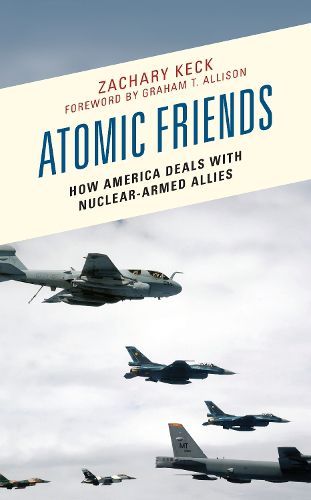Readings Newsletter
Become a Readings Member to make your shopping experience even easier.
Sign in or sign up for free!
You’re not far away from qualifying for FREE standard shipping within Australia
You’ve qualified for FREE standard shipping within Australia
The cart is loading…






Should the United States prevent additional allies from developing atomic weapons? Although preventing U.S. allies and partners from acquiring nuclear weapons was an important part of America’s Cold War goals, in the decades since, Washington has mostly focused on preventing small adversarial states from building the bomb. This has begun to change as countries as diverse as Germany, Japan, South Korea, Turkey, and Saudi Arabia, among others, have begun discussing the value of an independent nuclear arsenal. Their ambitions have led to renewed discussion in U.S. foreign policy circles about the consequences of allied proliferation for the United States. Despite the fact that four countries have actually acquired nuclear weapons, this discussion remains abstract, theoretical, and little changed since the earliest days of the nuclear era.
Using historical case studies, this book shines a light on this increasingly pressing issue. Keck examines the impact that acquiring nuclear arsenals had after our allies developed them. It achieves this by examining existing and recently declassified documents, original archival research, and- for the Israel and especially Pakistan cases- interviews with U.S. officials who worked on the events in question.
$9.00 standard shipping within Australia
FREE standard shipping within Australia for orders over $100.00
Express & International shipping calculated at checkout
Should the United States prevent additional allies from developing atomic weapons? Although preventing U.S. allies and partners from acquiring nuclear weapons was an important part of America’s Cold War goals, in the decades since, Washington has mostly focused on preventing small adversarial states from building the bomb. This has begun to change as countries as diverse as Germany, Japan, South Korea, Turkey, and Saudi Arabia, among others, have begun discussing the value of an independent nuclear arsenal. Their ambitions have led to renewed discussion in U.S. foreign policy circles about the consequences of allied proliferation for the United States. Despite the fact that four countries have actually acquired nuclear weapons, this discussion remains abstract, theoretical, and little changed since the earliest days of the nuclear era.
Using historical case studies, this book shines a light on this increasingly pressing issue. Keck examines the impact that acquiring nuclear arsenals had after our allies developed them. It achieves this by examining existing and recently declassified documents, original archival research, and- for the Israel and especially Pakistan cases- interviews with U.S. officials who worked on the events in question.